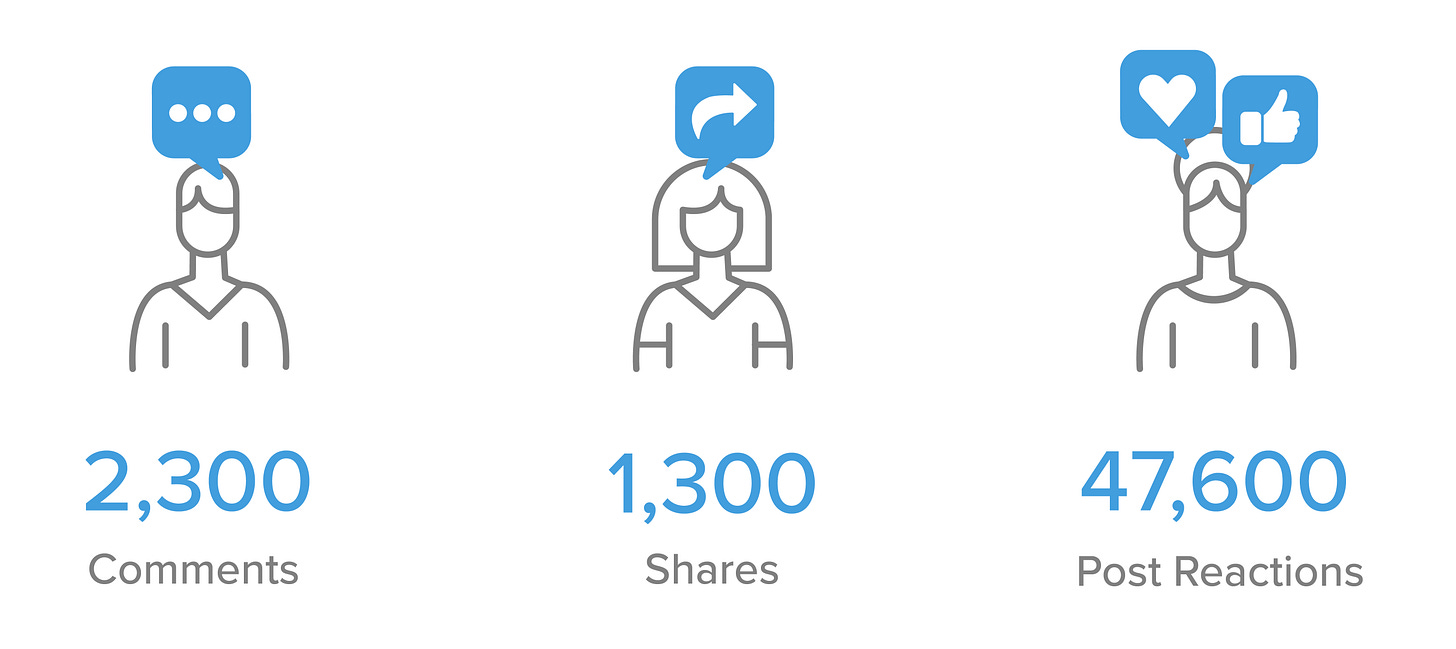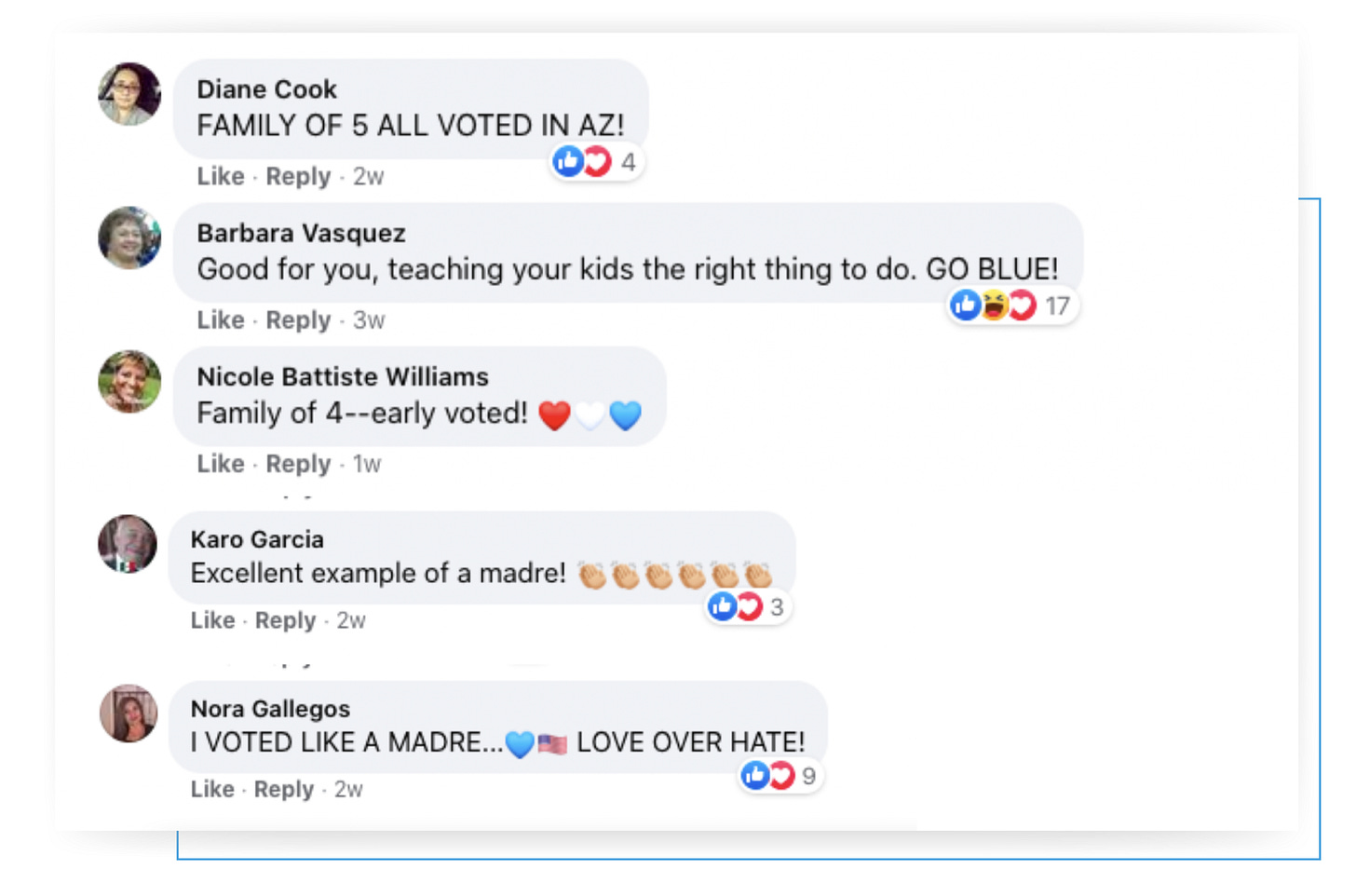Our Peer-to-Peer Political Campaigns Broke Records. Here’s How We Did It With Whitelisting.
We have seen a lot of success in our peer-to-peer political campaigns where we cultivated relationships between campaigns and constituents. Our creators reached millions of people.
BIG TAKEAWAY: In our last edition of ‘What the Polls Don’t Tell Us’, we showed you how commercial brands like Tommy Hilfiger are taking advantage of white-listing to harness the organic power of peer-to-peer campaigns at scale. Whitelisting is where an influencer permits a brand permission to run paid ads using their social media handle.
However, it turns out that the power of whitelisting is not limited to retail. It is also a powerful tool for amplifying organic political and advocacy messages to the people you need to show up or turnout.
SLEEPER TAKEAWAY: People trust political messages from people they know, like friends and family members. People trust political peer-to-peer campaigns but whitelisting helps bring that impact and trust to scale while still feeling organic.
Whitelisting messages from trusted community members helps with recall during campaigns. As campaigns become more digital and the volume of messages grows, this tactic becomes more critical.
CASE IN POINT: We worked with the political action committee Democratic Majority Action (DMA) and the Latino Victory Fund (LVF), where we saw the power of whitelisting political posts on social media firsthand.
In fact, our campaign targeting mothers with the Latino Victory Fund conducted the most extensive political micro-influencer campaign in American political history. We reached more than 2 million voters in Arizona, Georgia, and Florida.
Let’s dive into those two campaigns to see how we did it:
Here’s how whitelisting looked during our political campaign partnership with the Latino Victory Project.
People First worked with Latino Victory for a campaign called Vote Like a Madre: Latina moms broke through the noise to deliver authentic messages about voting for candidates who promised action on climate change to protect the planet for their children. Mothers made a “pinky promise” they would protect the environment and vote for a pro-climate candidate in 2020.
These posts did well organically but saw a boost when whitelisted.
In the four weeks leading up to the election, People First boosted 13 of our top-performing organic posts from our creators’ Facebook and Instagram accounts to directly target Latina voters in Florida and Arizona.
Here are some of those examples:
Our paid social campaign delivered:
That’s more than four times the average Facebook Ads CTR of 0.90%.
ANOTHER BIG THING: Our organic engagement in Arizona was the highest at 5.8%, which is more than three times the industry average.
Our paid social campaign accumulated more than:
Whitelisting helps to bring conversations about trust to scale.
Here are some examples:
Audiences engaged with our organic posts in the same way they engaged with our whitelisted posts:
We also saw the power of whitelisting to target moderate voters in Wisconsin.
People First has partnered with the Democratic Majority Action PAC to make sure Wisconsin voters are aware of Senator Ron Johnson’s terrible record heading into the 2022 midterms. Creators post content in response to various headlines about Johnson, including COVID-19 misinformation and his broken promise to not run for a third term.
Here’s a top-performing whitelisted post from this campaign:
This post saw a click-through rate of 19.47% on Facebook, which is more than 19 times the average Facebook click-through rate of 0.90%.
And the target audience of moderate voters responded feels strongly about voting Ron Johnson out of office:
Our paid media campaign gained more than:
THE BOTTOM LINE: People First has shown that whitelisting not only works with commercial brands but is also incredibly successful in political campaigns. We made history and broke records using paid media to elevate these personal narratives surrounding some of our time’s most polarizing topics and elections. In addition, our results show the power of tapping into trusted messenger networks and elevating the conversation through whitelisting.









